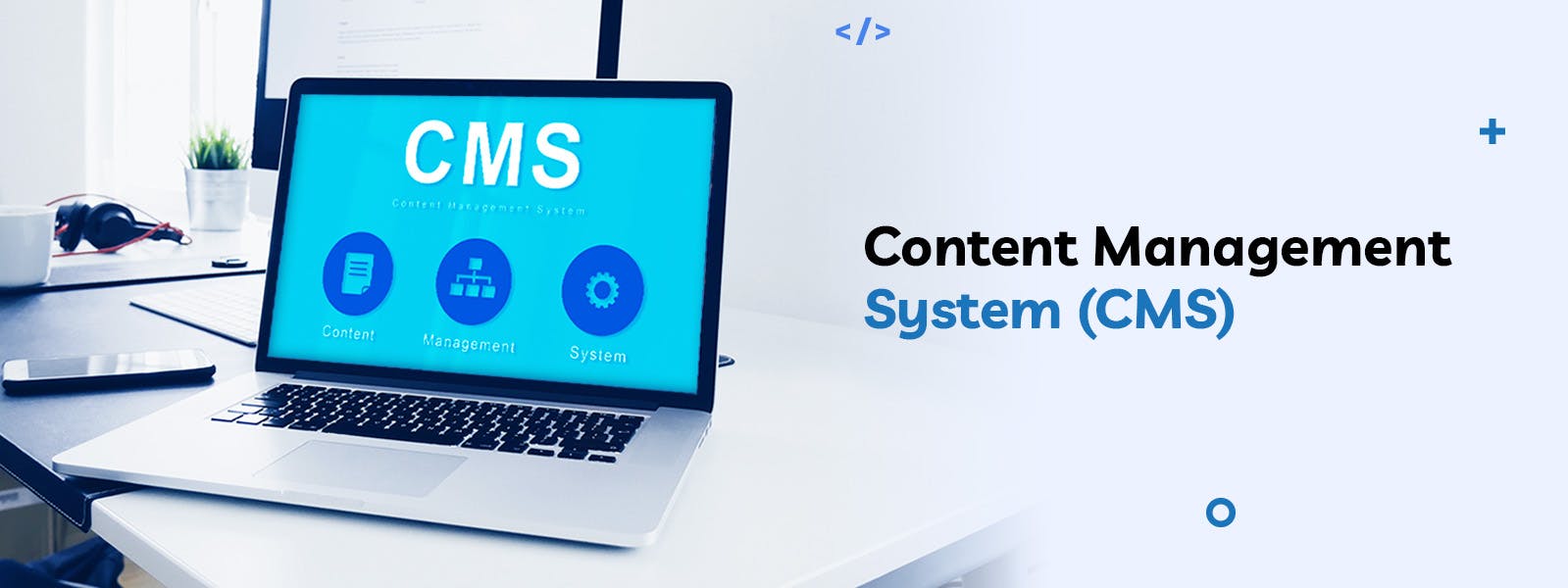Content Management System (CMS)
A content management system (CMS) is a software application that enables users to create, edit, collaborate on, publish and store digital content. CMSes are typically used for enterprise content management (ECM) and web content management (WCM).
The definition of a CMS is an application (web-based), that provides capabilities for multiple users with different permission, n levels to manage (all or a section of) content, data, or information of a website project, or intranet application.
Managing content refers to creating, editing, archiving, publishing, collaborating on, reporting, and distributing website content, data, and information.
A CMS provides a graphical user interface with tools to create, edit and publish web content without the need to write code from scratch.
CMS tools are easy-to-use for newbies while allowing developers scope to play with code. Beginners can start at a basic level and pick up skills as they go along. It’s suitable for almost every type of website. If you ever run into difficulties with CMS, you’ll be glad about the strong community that’ll help you troubleshoot.
A CMS, ECM, and WCMS all manage content, but there are differences between them: The CMS is the precursor to the ECM system. A CMS is a place to create, manage and store digital content, and works best with structured content -- such as documents and database records.
An enterprise content management system manages both structured and unstructured content. It includes software, strategies, and security to effectively manage content.
A web content management system is similar to an ECM system, but the differentiating factor is the WCMS is for web content -- such as product pages on e-commerce websites. It contains a publishing tool and facilitates collaborative authoring.
There are two types of CMS installation: on-premises and cloud-based. On-premises installation means that the CMS software can be installed on the server. This approach is usually taken by businesses that want flexibility in their setup. Notable CMSs which can be installed on-premises are Joomla, Drupal, Wordpress.org, ModX, and others.
The cloud-based CMS is hosted in the vendor environment. With this approach, the CMS software cannot be modified for the customer. Examples of notable cloud-based CMSs are SquareSpace, Wordpress.com, and WIX.
## CMS features Features can vary amongst the various CMS offerings, but core functions include: Intuitive indexing, search, and retrieval. These features index all data for easy access through search functions and enable users to search by attributes such as publication dates, keywords, or authors. Format management. This helps turn scanned paper documents and legacy electronic documents into HTML or PDF documents.
Revision features. These features enable content to be updated and edited after initial publication. Revision control also tracks any changes individuals make to files.
Publishing. This functionality enables individuals to use a template or a set of templates that an organization approves -- as well as wizards and other tools -- for content creation and modification.
A flexible system, easy to extend and customize has thousands of verified third-party extensions, modules, components, and plugins that can be easily found online.
## How to Choose a CMS Platform Decide on Your CMS Vision:** The most important question to ask yourself at the start of a CMS project is “What am I trying to achieve?" With a critical look at where you currently are, and where you want to be, you can start mapping out which content, data, tools, and integrations you already have - and which you need - to build your vision.
Understand CMS Features: After determining what you want to achieve from your CMS implementation, it's time to start selecting a content management system that will align with this vision. Certain characteristics of a CMS can help to move your CMS project along faster and speed up everyday tasks.
Think About the Cost: A crucial part of any CMS project is the cost involved. This is certainly true for an enterprise Content Management System which can amount to quite a hefty sum. By understanding the total fees associated with such a project means fewer unsavory financial surprises will come your way.
Calculate Your ROI: A CMS is an investment and therefore should guarantee you returns. So it makes sense that your first consideration should be to work out how much budget could be justified for this project, by calculating the return on investment.
Determine Your Budget: After estimating your returns, you can have a sense of how much the budget would be justified, and appropriate to the project's scale.
